June Wright’s debut novel Murder In The Telephone Exchange was a bestseller in 1948. Sales in Australia outstripped even those of the Duchess of Death, Agatha Christie. She bought a fur coat with the royalties and remodelled her kitchen. I love the combination of practical and glamour in her spending. 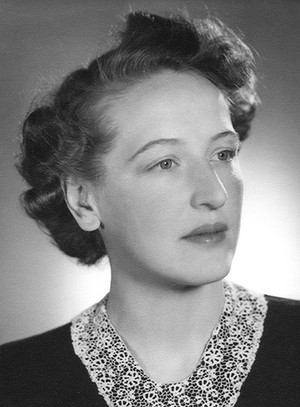 June wrote six more murder mysteries between 1948 and 1966, introducing a Catholic nun detective for her fourth novel, but when she died in 2012, her name was forgotten to most modern mystery and crime readers. Her slide in obscurity seems a shame, considering that in her heyday, along with her well-reviewed novels, she was treated to promotional lunches comprising of oysters, lobster and the Lord Mayor of Melbourne, Sir Raymond Connelly thanking June for publicising Melbourne. June enjoyed lots of favourable publicity throughout her career along the lines of “wrote thriller with baby on her knees.” June had six children, one disabled. Her son described her as a bit of a ‘media tart’ and she was ahead of her time in knowing how to hook the media with an angle to promote her work. She would most likely have thrived in this modern culture of author platforms and branding.
June wrote six more murder mysteries between 1948 and 1966, introducing a Catholic nun detective for her fourth novel, but when she died in 2012, her name was forgotten to most modern mystery and crime readers. Her slide in obscurity seems a shame, considering that in her heyday, along with her well-reviewed novels, she was treated to promotional lunches comprising of oysters, lobster and the Lord Mayor of Melbourne, Sir Raymond Connelly thanking June for publicising Melbourne. June enjoyed lots of favourable publicity throughout her career along the lines of “wrote thriller with baby on her knees.” June had six children, one disabled. Her son described her as a bit of a ‘media tart’ and she was ahead of her time in knowing how to hook the media with an angle to promote her work. She would most likely have thrived in this modern culture of author platforms and branding.
In one rather amusing incident, she entitled one of her books Who Would Murder a Baby? When challenged on the title, June replied: ‘Obviously you know nothing of the homicidal instincts sometimes aroused in a mother by her children. After a particularly exasperating day, it is a relief to murder a few characters in your book instead.’ June was happy to play up to her domestic house Queen of Crime label, describing to reporters her daily routine which involved caring for her six children and rising at 5.30 am to light the copper and write at night for two to three hours. She aimed to write 1000 words a day. Quite an inspiration for modern day writers, who don’t have to worry about lighting coppers at the crack of dawn.
A religious woman, she contributed several articles to Catholic Magazine Lay and despite the hardships of her life, she maintained her faith. When she was forced to give up her writing after six novels and return to work to help the family finances after her husband lost his job, she appeared to have done so with little regret.
I really enjoyed this bouncy and quirky mystery novel. A telephone exchange is a perfect setting for the novel and the building itself, where the murder takes place, takes on a slightly ominous atmosphere in the Melbourne heatwave. There were some wry and classic lines: “There was definitely something wrong in the Trunk exchange, for no-one is as sensitive to atmosphere as a crowd of females; especially when those females are telephonists. 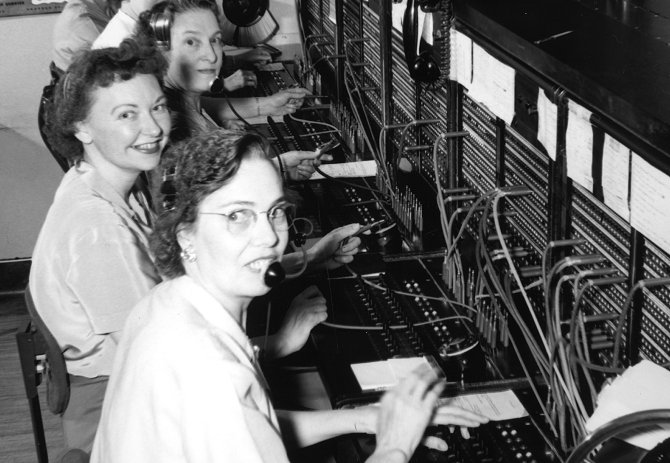 Knowing June is drawing on her personal experience in her experience as a telephonist, also makes it an absorbing read. I’d never considered before how frantic and overwhelming it could be for switchboard operators working through bushfire seasons, and international crises. The pressure seeing the girls collapsing from exhaustion, the stress on the late roster girls when the evening shifts are cut right back, the strained concentration you need when you have half-a-dozen lines under your fingers… Not to mention of course, the girls who love to listen in on socialites’ private calls. And little details like the possessive emotions the Hello Girls foster towards their telephone sets. And Maggie, the hero of the story, laughing over that wherever she goes, she runs into somebody from the telephone exchange, including when she went to New Guinea on a trip. You can really touch the author herself through those little flourishes, and they make for authentic insights into a particular era and career. And it is through her knowledge of the telephone exchange that Maggie Brynes, the book’s hero is able to help solve the crime.
Knowing June is drawing on her personal experience in her experience as a telephonist, also makes it an absorbing read. I’d never considered before how frantic and overwhelming it could be for switchboard operators working through bushfire seasons, and international crises. The pressure seeing the girls collapsing from exhaustion, the stress on the late roster girls when the evening shifts are cut right back, the strained concentration you need when you have half-a-dozen lines under your fingers… Not to mention of course, the girls who love to listen in on socialites’ private calls. And little details like the possessive emotions the Hello Girls foster towards their telephone sets. And Maggie, the hero of the story, laughing over that wherever she goes, she runs into somebody from the telephone exchange, including when she went to New Guinea on a trip. You can really touch the author herself through those little flourishes, and they make for authentic insights into a particular era and career. And it is through her knowledge of the telephone exchange that Maggie Brynes, the book’s hero is able to help solve the crime.
Maggie is bouncy and a real character. When she discovers the body of her colleague , her head bashed in quite viciously, with an exotic sounding Buttinski (I’d never heard of such an object, so if you’re curious, buy the book) she first faints and then recovering swiftly, finds the situation both intriguing and exciting. She is forthright in her opinion to all and sundry that the victim was an abominable character. This is a world of milk-carts, and boarding-houses for girls from the country under the supervision – and prying eyes – of landladies like Maggie’s, Mrs Bates. Women are mocked for being spinsters and cold cream is applied at night to keep wrinkles at bay. Gloves are worn in the street for all occasions, and a favourable blessing reflecting the fashions of the time was, ‘may all your children have curly hair.’
Inspector Coleman, the shabby-looking Inspector in charge of the case is a well-sketched character. The most untidy man Maggie had ever seen, she came to realise that the more haphazard he appeared to be, the closer he had his nose to the scent. Although I still can’t quite fathom out why the investigating police needed Maggie (who was obviously a suspect in the case) and took her along on their investigation to the victims room to help them out with identifying notes. Modern readers used to short chapters and plots that crack along faster than their Twitter feed may find themselves sighing over longer chapters and a complex plot that is content to unwind leisurely. Although I picked the murderer before the denouement, I still enjoyed the puzzle. I found the book unexpectedly intense and gripping in places and although Maggie’s unflappable perkiness could be irritating, I enjoyed slipping into an authentic mystery novel of this era. She was a great forerunner for Melbourne female crime writers such as Kerry Greenwood. Hats off to Verse Chorus Press for resurrecting and reintroducing Ms June Wright to a new audience. See the link to Janet Walker’s article below for an interview with Steve Connell from the publishers to discover why an American Publishing press is publishing Australians.
And the link below also to Lucy Sussex’s analysis of June’s work. Lucy was fortunate enough to meet June and interview her before her death and I enjoyed reading her impressions on this writer: ‘A charming, elegant, eloquent old lady, as sharp as tacks. We got on well – I knew her type well–that generation of women born in the shadow of WW1, growing up in the Depression, marrying during WW2. They were tough and resourceful. She told me she had a good life, and seemed very contented. Indeed, she said the writing had not been getting any easier, rather harder, as she continued in her career.’ It’s heartening to think that June Wright’s contribution to the field of crime and mystery writing in Australia will not be lost thanks to the vision of this American publishing team – a sweetly ironic twist they are American as June was never picked up by the US in her career – which may well have made a difference to her being able to continue her work. I look forward to reading all of June Wright’s books, if they continue to publish her list. And I leave you with June’s typical astute and wry comment that housewives were well suited to writing, because: ”they are naturally practical, disciplined and used to monotony – three excellent attributes for budding writers”. 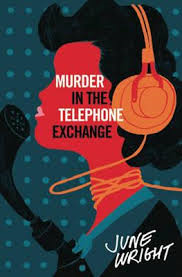
Some links you may enjoy to explore more on June Wright:
The Lady Vanishes from the Sydney Morning Herald HERE
Juggled Crime Fiction with Motherhood from the Age HERE
– Janet Walker’s article on The Culture Concept Circle on June and an interview with Steve Connell of Verse Chorus Press HERE
An interview with Melbourne Sister in Crime, Mandy Wrangles with author, editor and historian, Lucy Sussex on June, her importance and why she has been overlooked. HERE
Damned to Literary Obscurity by Andrew Nette who examines the cultural cringe towards Australian writers at home and the bias against Catholics that may have prevented June Wright from continuing her writing. HERE
This review is part of my Australian Women Writers Challenge for 2014.
Thank you for visiting me. Please share this post with your social media friends if you feel they would enjoy it.
Love and Light,
Josephine xx

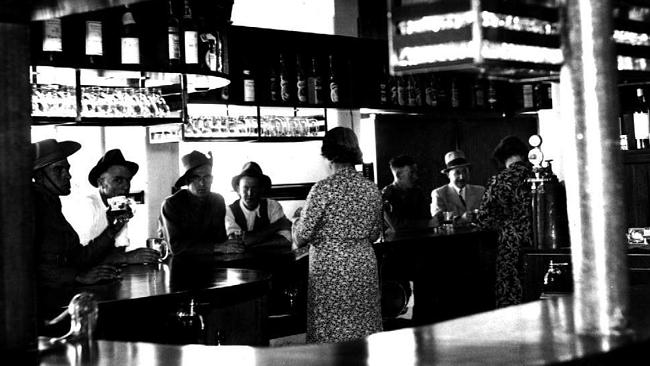
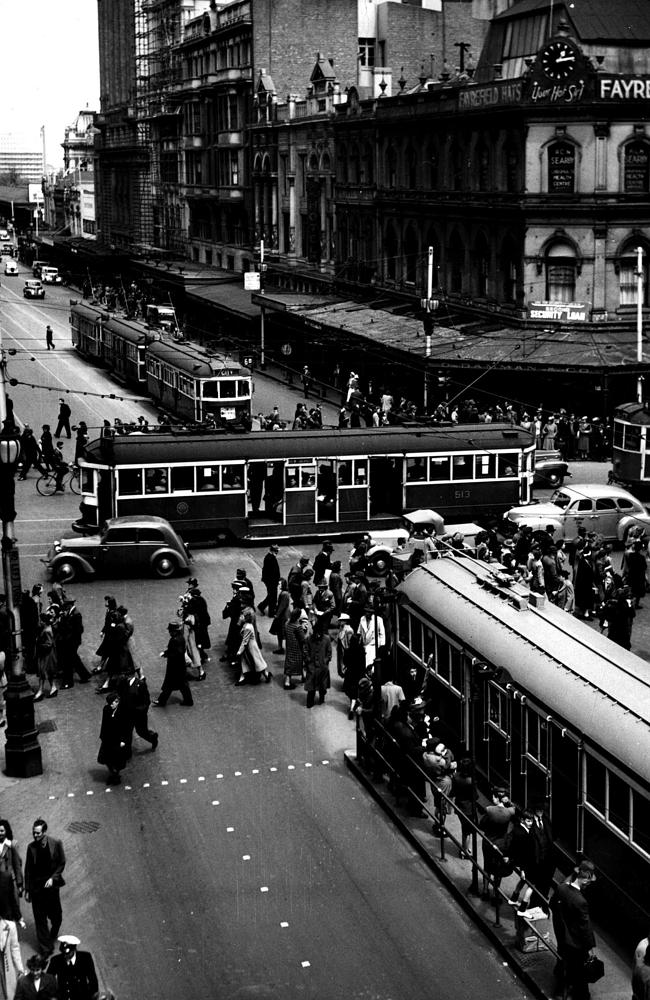
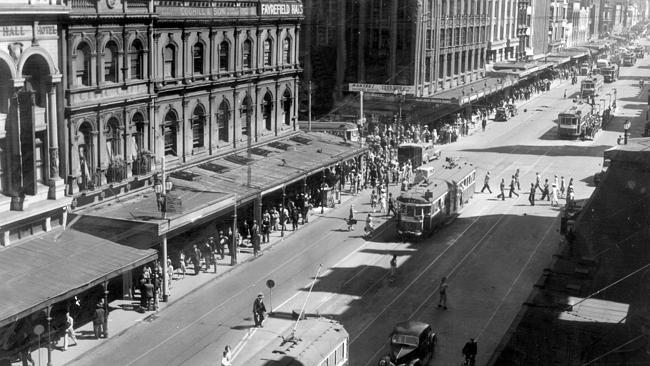
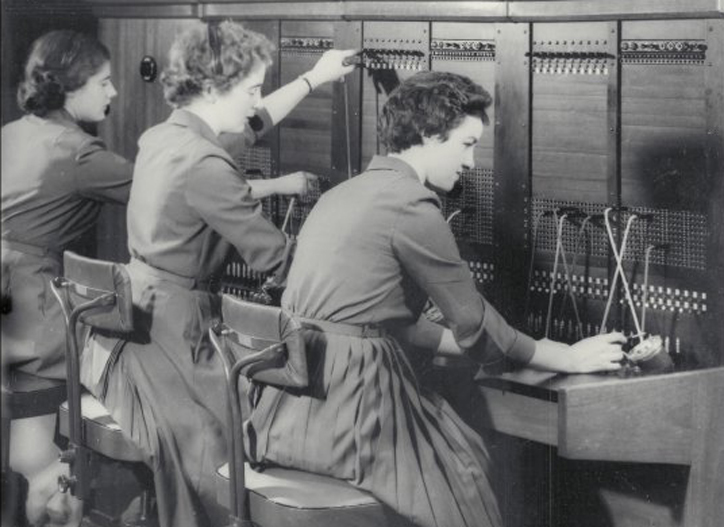
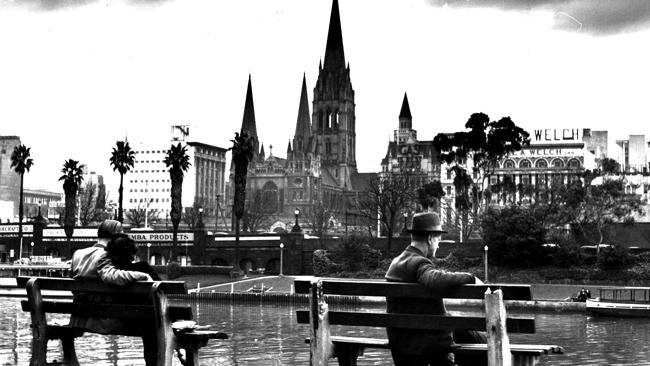
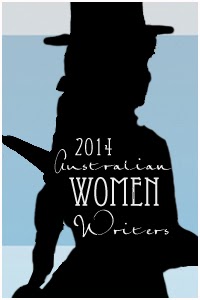
Dear Josephine,
Loved your article and the so evocative pictures.
I have just finished collating three volumes of my Mother’s non-fiction works.
I admit my main focus is on my granddaughters, to tell them something of their great grandmother – who had a dream.
(I suspect also I am working through some mother-son stuff!)
I write somewhere ..
June’s writings (both fiction and non-fiction) present a precious and unique account of her life, her experiences and the times and cultures in which she lived. Their value is personal, family and historical. This is an important female voice, that is worth hearing (well reading!).
best wishes
patrick
Hello Patrick, thanks so much for your reply. It made my night! So wonderful to connect with you and I’m really pleased that you enjoyed this post. I love the fact that you’re collating more of June’s work and I hope they eventually find a publisher so we can all enjoy them. What a remarkable legacy she has left for you and her granddaughters. I hope the process helps you work through your mother-son issues. Can relate to that one! I look forward to reading June’s next book and I’m so thrilled that her work is now being enjoyed by a new generation of readers. Good luck with your project and thank you so much for taking the time to leave a comment and leaving me know you enjoyed the post. I love hearing from all readers but to hear from June’s son means a lot to me.
Warmest Wishes, Josephine